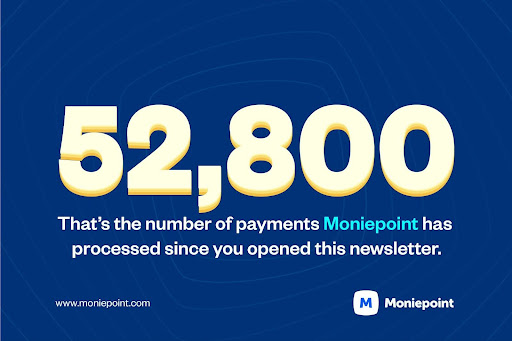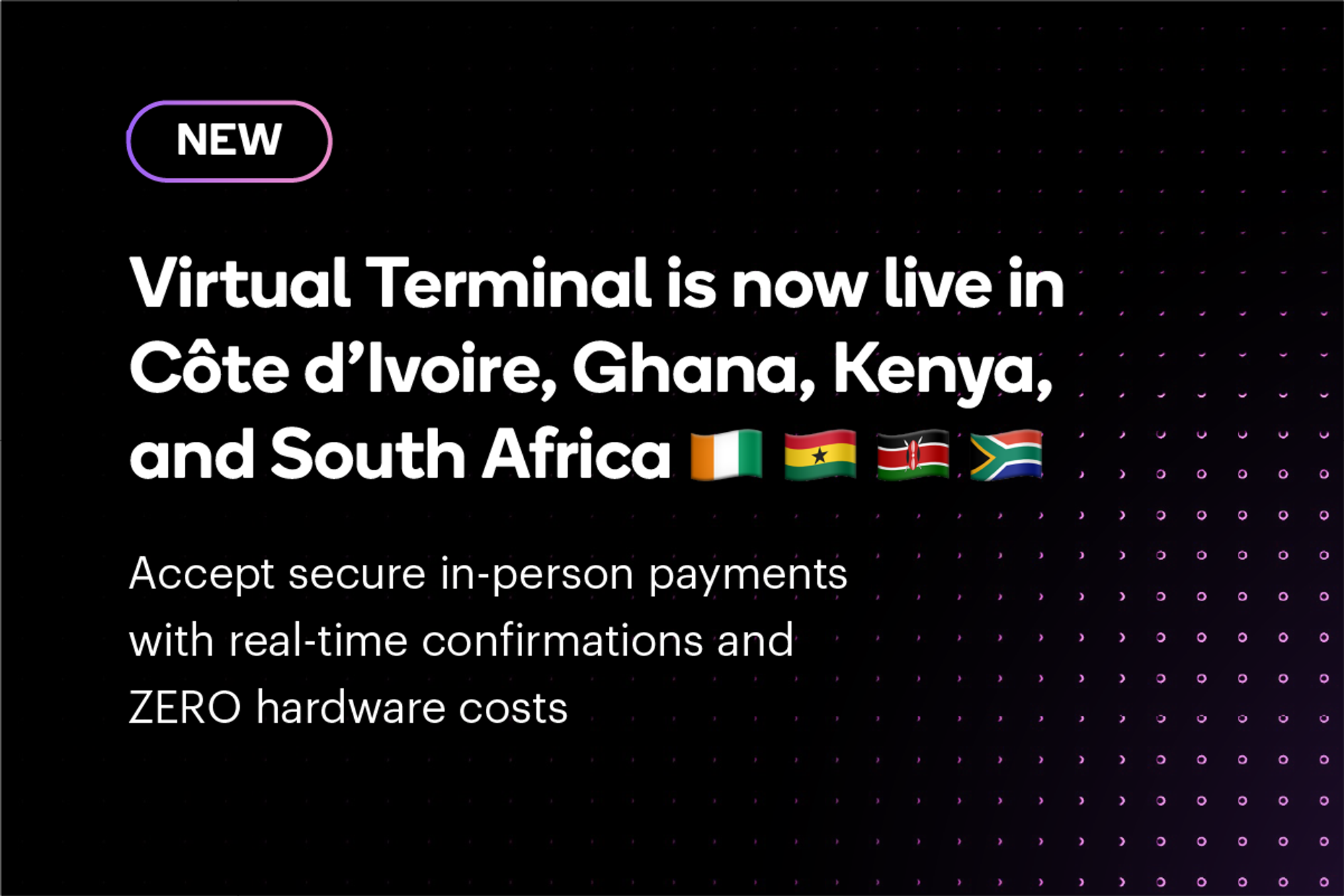

Happy pre-Friday ☀️
It may be time for you to leave X Twitter and sow your threads somewhere else, like Threads.
Last year, Instagram’s X rival made a splash at launch as people flocked to it, primarily to spite Chief Twit Elon Musk. Threads became the fastest social media platform to reach 100 million users but that quickly dipped as the novelty wore off. Now, on its anniversary, the app is celebrating 175 million active monthly users.
It’s not as funny as X is, yet, but it might be time to start using Threads more just so you diversify your audience.
Disclaimer: This is not a sponsored post by Meta, but if you know Mark Zuckerberg or Adam Mosseri, please let them know we don’t shy away from partnerships. Our email is at the bottom of this newsletter, Mark. Call us, we’ll treat you well.
Copia is shutting down
Copia Global broke into Kenya’s e-commerce market in 2013 to provide an online-offline platform for small business owners in rural and peri-urban areas in Kenya to restock household goods and sell to low-income consumers. This specific approach was how Copia Global leveraged social trust during a time when Africans, including Kenyans, didn’t want to pay for goods online. And for nearly a decade, this worked.
With a network of 54,000 agents, Copia serviced more than 750 million households in Kenya.
Copia brought e-commerce offline through its agent network. Customers who were not technology-savvy (due to low mobile penetration), and underserved Kenyans placed orders on their grocery shopping and household items, and paid with cash to these agents.
Copia’s rise coincided with the explosive growth of smartphone penetration and increased consumer spending. At its zenith, Copia Global was a cornerstone of Kenya’s tech ecosystem. It was named one of the fastest-growing companies by Financial Times in 2022 and 2023. The company expanded to Uganda in 2021, raised $123 million in funding, reached a peak valuation of $250 million, and was projected to exceed $60 million in annual revenue in 2023.
E-commerce is hard business: Copia Global had a vision of becoming pan-African, and expanding into rural networks of other African countries. However, it has had to scale back that plan following its Uganda shutdown. Jumia, too, scaled back operations in Cameroon in 2019 when it experienced its highest loss.
The jury will be out on what went wrong for Copia Global: Targeting low-income households with a KES4,101 ($31.77) monthly spend in rural Kenya limited Copia’s profit margins. And maintaining a vast network of local agents (mom-and-pop shops) put a strain on its resources. If you add Kenya’s difficult economic climate, then you get a hodge-podge that made supply-chain a horror show.
As we write this, Copia Global is counting down to its last days as it has kick-started liquidation plans after failing to raise additional funding.
Kenn Abuya reports that the company will lay off all employees—who will receive severance packages today, July 4—and sell assets, including delivery tracks, warehouses, and office equipment to raise money to pay creditors.
We recommend reading our entire coverage of Copia Global over the last few weeks to learn how their Pan-African vision hit the rocks.
Process payments smoothly with Moniepoint

And we’ll have processed almost 5,000 more by the time you’re done reading this. Your business payments can be one of them. Click here to sign up.
Safaricom offers one-year rent and mobile phones to Kenyan protest victims
Last week, Safaricom came under scrutiny after it was linked to an internet blackout that coincided with Kenya’s Finance Bill protests.
The telecom put out two statements: first, it claimed damage to subsea cables caused the disruption, and later—after surprisingly fixing the cables which usually takes months—Safaricom claimed all telecoms were having internet issues. But the statement didn’t stop Kenyans from selling their shares. The company was also accused of helping the police track down protestors, about 50 of whom are still missing.
The company is turning a new leaf: With ongoing protests and the mounting death toll and injured victims, Safaricom is offering a respite. The telecom giant has announced that it will give smartphones and airtime to people who lost their phones during the protests.
Safaricom will also support affected individuals with three months’s worth of food and one year’s rent for people in extreme conditions.
The telecom giant donated KES15 million ($116,279) to the Kenyatta National Hospital to support affected victims of the protest. The firm will donate KES10 million of the donation to the hospital’s Disaster Response Centre and KES 5 million ($38,759) worth of assistive devices to injured victims to support those injured and admitted at the hospital.
A peacemaker: This is not Safaricom’s first rodeo in donations geared towards achieving peace and relief. In the build-up towards the elections in 2013, the telecom partnered with Sisi ni Amani –Kenya, a community-based peace organisation leveraging SMS technology as a tool for fostering peace.
The telecom through its M-Pesa foundation is also organising medical camps in affected areas across the country. Safaricom will also donate an additional KES12.5 million ($96,899) for similar initiatives across the country.
Issue USD and Euro accounts with Fincra

Create and manage USD & Euro accounts from anywhere. Fincra allows you to issue accounts to your users, partners & customers to collect payments without the stress of setting up and operating a local account. Get started today.
Zedcrest acquires RMB Stockbroker
Mergers and acquisitions happen for three main reasons. One is talent acquisition. Two, customer expansion. And lastly service expansion. Acquisitions broaden an acquirer’s service offerings and capabilities.
Zedcrest acquisition of RMB Nigeria Stockbrokers Ltd falls under the latter. The acquisition, which is thought to be worth at least ₦400 million ($262,000), is touted as a move to expand Zedcrest’s services and offer its clients access to Nigeria’s stock market.
The investment firm, which offers credit and investment solutions to its clients, wants to offer trading on Nigeria’s stock market to its list of clients even as Nigeria’s stock exchange market hit a 15-year high in August last year.
RMB Stockbroker Ltd which buys and sells securities (stocks, bonds, etc.) on behalf of clients will now be rebranded as Zedcrest security. The acquisition comes as Nigerian banks are in the middle of a recapitalisation push. Analysts say that Zedcrest might be looking to make profits from the craze as more people will be looking to buy bank shares.
Paystack Virtual Terminal is now live in more countries

Paystack Virtual Terminalhelps businesses accept secure, in-person payments with real-time WhatsApp confirmations and ZERO hardware costs. Enjoy multiple in-person payment channels, easy end-of-day reconciliation, and more. Learn more on the Paystack blog →
Peleza merges with Prembly
In April, BuuPass, a Kenyan ticketing platform, acquired Nigeria’s QuickBus—a similar platform based in Nigeria. Today, we have seen similar developments in two startups based in the same countries, Nigeria’s Prembly and Kenya’s Peleza.
Peleza, a KYC company, conducts background checks for businesses and is quite adept at doing it offline; Prembly provides identity verification, security, and compliance for startups and is fully digital.
Why is this important? Peleza has some key clients in the East African market. It conducts background checks for Uber, Bolt, and even logistics giant FedEx.
So, considering this is a merger which has been christened “Prembly Group”, the new entity aims to gain traction in the East African market.
Some leadership changes have been made: Lanre Ogungbe, the co-founder and CEO of Prembly, has been appointed the CEO of Prembly Group. Marita Mutemi, the founder and CEO of Peleza, will join the Prembly Group as CFO and double as the CEO of Prembly East Africa.
About ten employees were affected by this, but Mutemi and Ogungbe told TechCabal that this arose from the duplication of roles. “This merger brings the combined team to about 100 employees. Team members have been assigned to different roles to support growth, with only a few duplicated roles (less than 10) being affected.”
- The Africa Prize for Engineering Innovation is open to African innovators creating engineering solutions to local challenges. Innovators from sub-Saharan Africa should pitch viable engineering products or services that will have social or environmental benefits to the continent. Apply for the chance to get up to $25,000 in funding.
- The Future of Capitalism Tech Startup Competition is offering $1 million to one lucky tech startup that can transform how businesses today operate. If your tech can save costs, boost efficiency, increase productivity or customer satisfaction, then apply by September 30 for a chance to win.
- Applications are now open for the 5th cohort of Microsoft’s GrowthX Accelerator Programme. AI Startups can apply to join the eight-week incubator that will provide $25,000 worth of azure credits, mentorship from some of the biggest tech corporations and investor readiness lessons. Apply by September 2, 2024.
- The WASCI Next Generation Technology Internship is open to young graduates in Nigeria and Ghana who want to use tech to solve social problems. The six-month programme will see 3 interns work in civil society organisations. Apply by July 12.
Here’s what we’ve got our eyes on
Written by: Emmanuel Nwosu, Faith Omoniyi & Kenn Abuya
Edited by: Timi Odueso
Want more of TechCabal? Sign up for our insightful newsletters on the business and economy of tech in Africa.
- The Next Wave: futuristic analysis of the business of tech in Africa.
- Entering Tech: tech career insights and opportunities in your inbox every Wednesday at 3 PM WAT.
- TC Scoops: breaking news from TechCabal
P:S If you’re often missing TC Daily in your inbox, check your Promotions folder and move any edition of TC Daily from “Promotions” to your “Main” or “Primary” folder and TC Daily will always come to you.
























